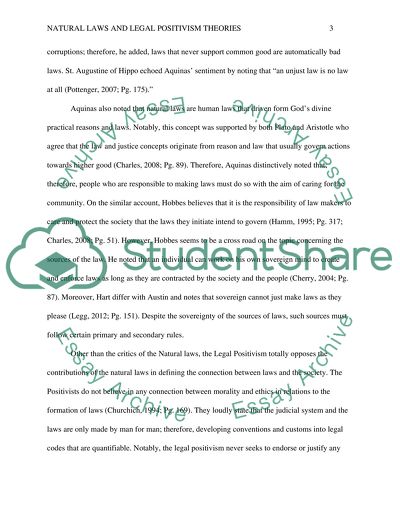Cite this document
(“The natural law tradition is prey to objections from both moral Essay”, n.d.)
The natural law tradition is prey to objections from both moral Essay. Retrieved from https://studentshare.org/law/1627866-the-natural-law-tradition-is-prey-to-objections-from-both-moral-sceptics-and-legal-positivists-there-is-no-moral-truth-against-which-human-laws-can-be-judged-and-in-any-case-laws-are-made-by-humans-and-are-not-answerable-to-any-objective-conception
The natural law tradition is prey to objections from both moral Essay. Retrieved from https://studentshare.org/law/1627866-the-natural-law-tradition-is-prey-to-objections-from-both-moral-sceptics-and-legal-positivists-there-is-no-moral-truth-against-which-human-laws-can-be-judged-and-in-any-case-laws-are-made-by-humans-and-are-not-answerable-to-any-objective-conception
(The Natural Law Tradition Is Prey to Objections from Both Moral Essay)
The Natural Law Tradition Is Prey to Objections from Both Moral Essay. https://studentshare.org/law/1627866-the-natural-law-tradition-is-prey-to-objections-from-both-moral-sceptics-and-legal-positivists-there-is-no-moral-truth-against-which-human-laws-can-be-judged-and-in-any-case-laws-are-made-by-humans-and-are-not-answerable-to-any-objective-conception.
The Natural Law Tradition Is Prey to Objections from Both Moral Essay. https://studentshare.org/law/1627866-the-natural-law-tradition-is-prey-to-objections-from-both-moral-sceptics-and-legal-positivists-there-is-no-moral-truth-against-which-human-laws-can-be-judged-and-in-any-case-laws-are-made-by-humans-and-are-not-answerable-to-any-objective-conception.
“The Natural Law Tradition Is Prey to Objections from Both Moral Essay”, n.d. https://studentshare.org/law/1627866-the-natural-law-tradition-is-prey-to-objections-from-both-moral-sceptics-and-legal-positivists-there-is-no-moral-truth-against-which-human-laws-can-be-judged-and-in-any-case-laws-are-made-by-humans-and-are-not-answerable-to-any-objective-conception.


